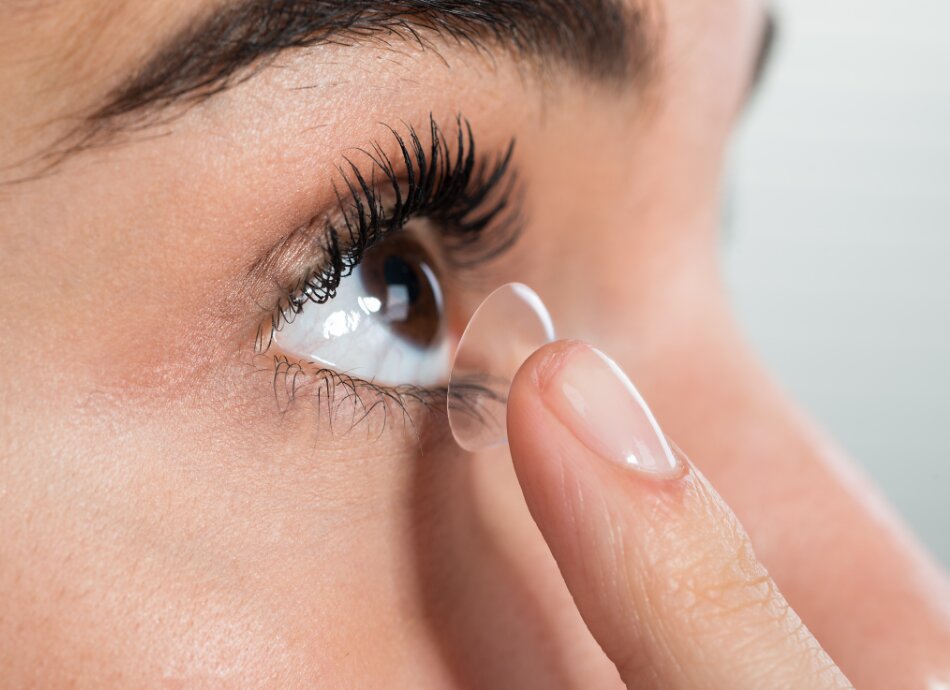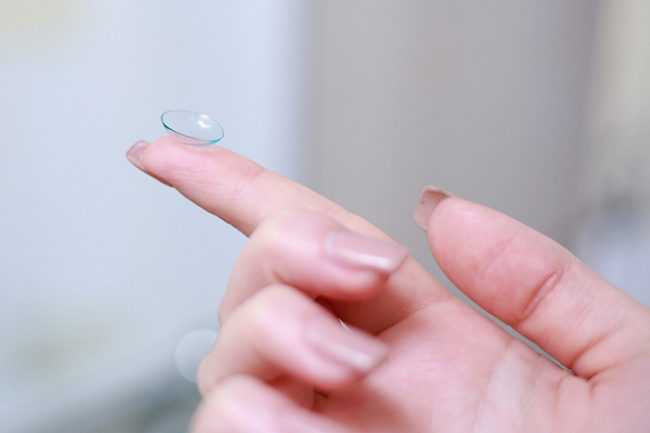Key points about contact lenses
- A contact lens is a small, thin, soft or hard plastic lens placed directly on the surface of your eye.
- It can be used instead of glasses to correct visual problems such as short-sightedness.


Compared to wearing glasses, contact lenses have several advantages including:

Image: Pixabay
Before using contact lenses, you'll need to see an optometrist for an eye examination. They can advise you about the most suitable type of lenses for your eyes which often are soft contact lenses that are daily disposable or reusable (e.g., weekly, fortnightly, or monthly) depending on your needs. Depending on your eye condition, an optometrist may recommend hard contact lenses instead.
They will also teach you how to use and clean your contact lenses. Taking care of your contact lenses properly helps keep your eyes healthy and reduces the risk of infection.
It’s normal to feel a bit squeamish when you first put them in and take them out, but practice makes perfect and before long it will become second nature.
Follow these steps for putting your contact lenses in. It might feel strange at first, but the more often you do it, the easier it gets.
Again, this gets easy to do once you're used to it.
Here are some top tips to help you look after your contact lenses and some advice to help you put them in and take them out with ease.
Make sure you follow the instructions of the contact lens manufacturer and that of your optometrist. The instructions may vary depending on the type you have. If you have any questions or concerns, please contact your optometrist.
Before handling your contact lenses, always wash your hands thoroughly with soap then dry them on a lint-free towel to avoid getting an eye infection.
After taking them out, clean them by gently rubbing them with a few drops of contact lens solution or by soaking in a fizzling cleaning solution overnight as directed by your optometrist. If you are cleaning your contact lenses with the fizzling solution, you must wait until all the bubbles (about 6-8 hours) have gone before inserting them back on to your eyes. Do not use saliva or water to clean them as this can cause eye infections.
Put them carefully into the contact lens case. Make sure the case is clean and filled with fresh contact lens solution. Clean your case regularly and let it air dry.
Throw your contact lenses out after the recommended period, e.g., if you have monthly lenses, then throw them out one month after opening the contact lenses.
Unless advised by your optometrist, don’t sleep with your contact lenses in as this increases the risk of infection.
Take out your contact lenses if you are showering. If you’re swimming, playing water sports or in a hot tub, either take your contact lenses out or wear tight goggles to ensure water doesn't get in.
Put your make-up on after putting your contact lenses in to reduce the risk of getting make-up on your lenses or in your eyes.
Discard your contact lenses and solution if they are past their expiry dates.
You should stop wearing your contact lenses up to about 14 hours per day and give your eyes a break. Stop wearing your contact lenses immediately if they are damaged or your eye is red and sore. Contact your optometrist for further advice.
Always have a pair of glasses handy just in case you have an issue with your contact lenses and need to put your glasses on.
Your eyes may be dry when wearing contact lenses. You may wish to lubricate the surface of your eyes using eye drops. Please contact your optometrist for their recommendation before using eye drops.
Red sore eyes with discharge may be a sign of infection. If you notice this happening, please contact your optometrist for advice as soon as possible.
Visit your optometrist regularly such as every year for a check-up to make sure your eyes are still suitable for contact lenses.
Credits: Healthify editorial team. Healthify is brought to you by Health Navigator Charitable Trust.
Reviewed by: Kenny Wu, Optometrist, Eye Institute, Auckland
Last reviewed:
Page last updated: